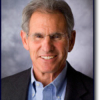Jon Kabat-Zinn

Jon Kabat-Zinn
Jon Kabat-Zinnis Professor of Medicine Emeritus and creator of the Stress Reduction Clinic and the Center for Mindfulness in Medicine, Health Care, and Society at the University of Massachusetts Medical School. Kabat-Zinn was a student of Buddhist teachers such as Thich Nhat Hanh and Zen Master Seung Sahn and a founding member of Cambridge Zen Center. His practice of yoga and studies with Buddhist teachers led him to integrate their teachings with those of science. He teaches mindfulness, which he...
NationalityAmerican
ProfessionEducator
Date of Birth5 June 1944
CountryUnited States of America
Mindful parenting is the hardest job on the planet, but it's also one that has the potential for the deepest kinds of satisfactions over the life span, and the greatest feelings of interconnectedness and community and belonging.
When awareness embraces the senses, it enlivens them.
Stillness, insight, and wisdom arise only when we can settle into being complete in this moment, without having to seek or hold on to or reject anything.
If we hope to go anywhere or develop ourselves in any way, we can only step from where we are standing. If we don't really know where we are standing... We may only go in circles...
Meditation is simply about being yourself and know about who that is.
Mindfulness is about love and loving life. When you cultivate this love, it gives you clarity and compassion for life, and your actions happen in accordance with that.
Perhaps the most "spiritual" thing any of us can do is simply to look through our own eyes, see with eyes of wholeness, and act with integrity and kindness.
In Asian languages, the word for 'mind' and the word for 'heart' are same. So if you're not hearing mindfulness in some deep way as heartfulness, you're not really understanding it. Compassion and kindness towards oneself are intrinsically woven into it. You could think of mindfulness as wise and affectionate attention.
See for yourself whether letting go when a part of you really wants to hold on doesn't bring a deeper satisfaction than clinging.
When you have children, you realize how easy it is to not see them fully, and perhaps miss all those early years. If you are not careful, you can be too absorbed in work, and they will be only too happy to tell you about it later. Being a parent is one of greatest mindfulness practices of all.
To let go means to give up coercing, resisting, or struggling, in exchange for something more powerful and wholesome which comes out of allowing things to be as they are without getting caught up in your attraction to or rejection of them, in the intrinsic stickiness of wanting, of liking and disliking.
From the point of view of the meditative traditions the entire society is suffering from attention deficit hyperactivity disorder.
"What is my job on the planet?" is one question we might do well to ask ourselves over and over again. Otherwise, we may wind up doing somebody else's job and not even know it. And what's more, that somebody else might be a figment of our own imagination, and maybe a prisoner of it as well.
Karma is often wrongly confused with the notion of a fixed destiny. It is more like an accumulation of tendencies that can lock us into particular behavior patterns, which themselves result in further accumulations of tendencies of a similar nature... But is is not necessary to be a prisoner of old karma.